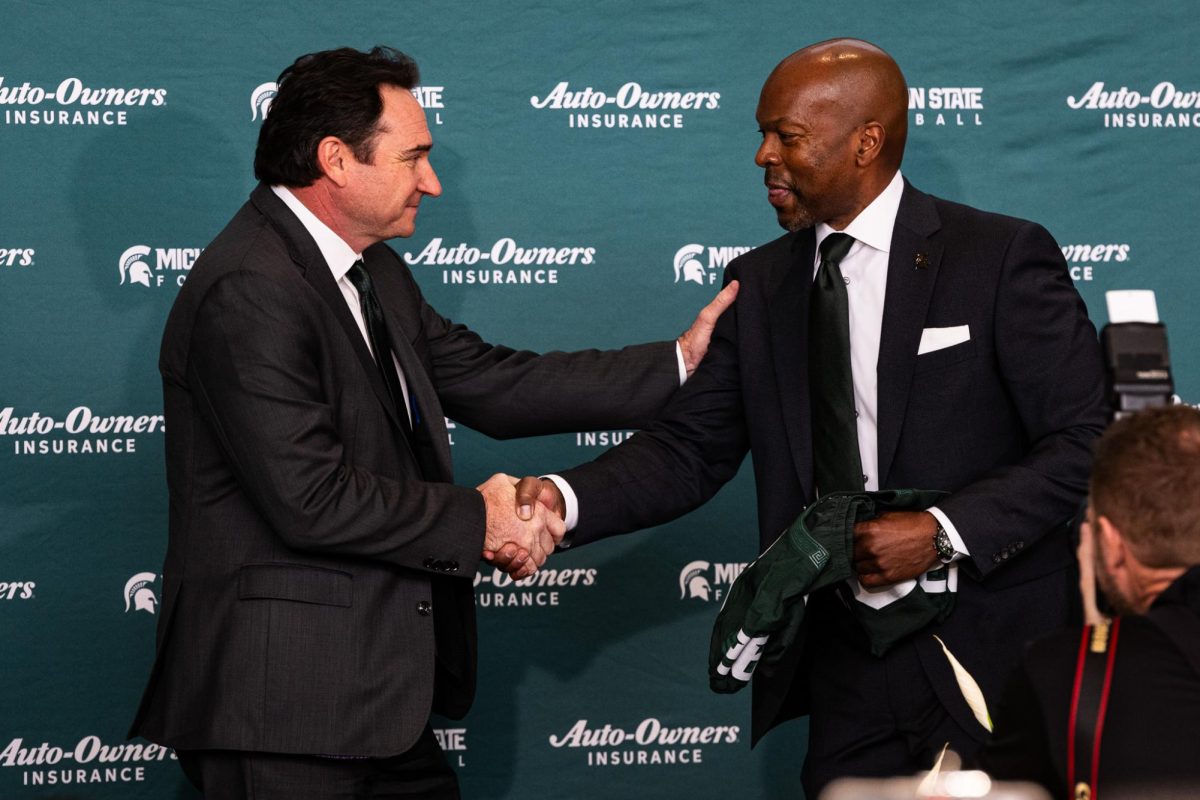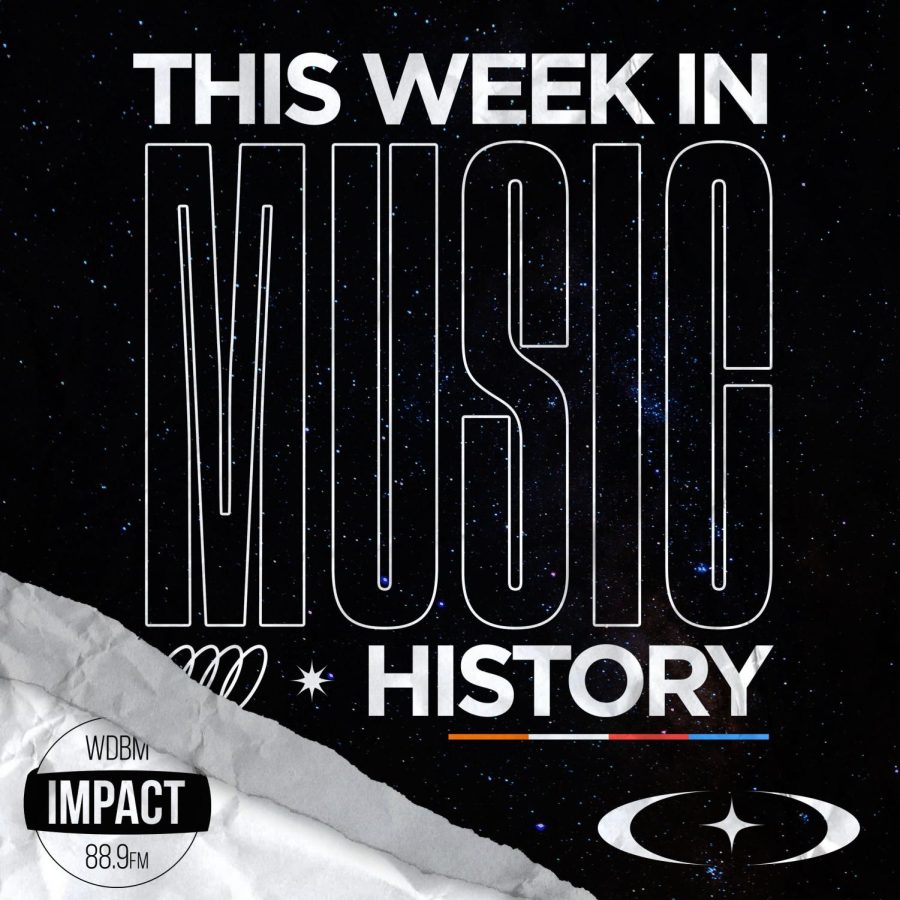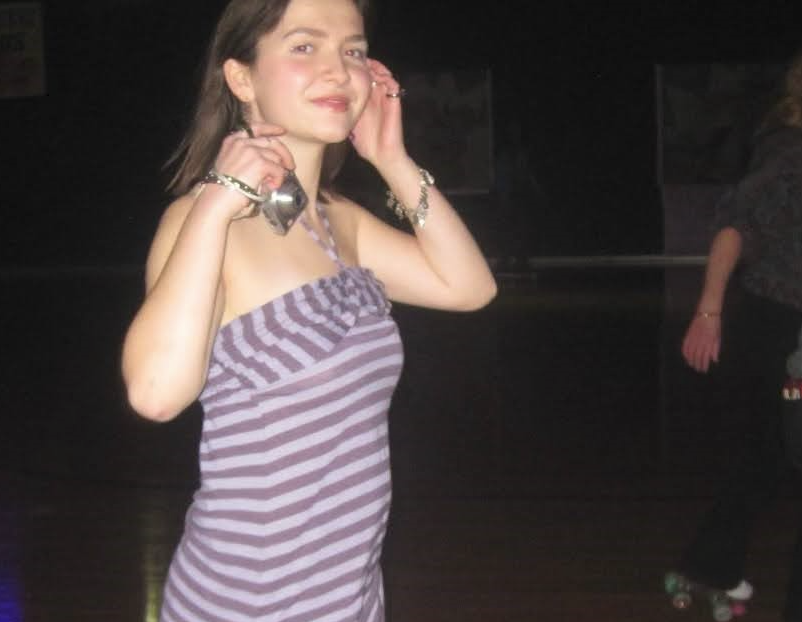On Oct. 11, 1975, Saturday Night Live, then known as NBC’s Saturday Night, made its debut. Created by Lorne Michaels, SNL was developed to appeal to a younger audience. The 90-minute show consists of a guest host, a musical act and several comedy sketches performed by the constantly changing main cast and the show’s guests.
The first episode of SNL featured comedian George Carlin as the host and two musical guests: R&B and keyboard legend Billy Preston and folk singer-songwriter Janis Ian. Only nine actors were part of the main cast in the first season, which is small compared to the 17 players of the most recent season.
SNL is notable in the music world for its infamous pop culture moments and controversies. Some of these moments include Ashlee Simpson’s lip-syncing controversy in 2004, Sinéad O’Connor tearing up a picture of Pope John Paul II after her performance of “War” by Bob Marley in 1992 and, more recently, Kanye West choosing to wear a MAGA hat while giving a pro-Trump speech in 2018.
SNL is host to many iconic moments and continues to stay relevant in the ever-changing media landscape.
~ Brooke Racine
On Oct. 12, 1997, timeless folk/country musician John Denver was killed piloting an experimental plane near Monterey Bay, California. Aside from music and songwriting, Denver shared a passion for flying with his father, a U.S. Air Force Pilot. He had grown up flying, which placed that adoration second next to his love of music. John was merely 53 years old when he died.
Known for hits such as “Take Me Home Country Roads,” “Rocky Mountain High” and “Annie’s Song,” Denver holds the title of one of the most influential artists of the folk and country world and was of monumental impact in the ‘70s. Featured in both the Rock and Roll and Country Hall of Fame, he was a trailblazer and continues to inspire.
Based on a past of drug and alcohol abuse, many believed the accident was inflicted due to continued misuse. This was debunked by the results of his autopsy and toxicology report. Denver’s plane likely held a low level of fuel leading to its roughly 500-foot plunge into the Pacific following some tinkering with the gas tanks.
Cut too short, Denver had accomplished a plethora of feats in his lifetime. He was a two-time Grammy winner, Emmy winner, three-time American Music Award winner and was featured on many big projects including the beloved 1979 Muppets’ Christmas album. He was also an avid environmentalist and humanitarian, receiving many accolades and often performing for charitable and environmental causes.
Although leaving on a jet plane may not have been his initial plan, Denver left a remarkable legacy through his raw and heartfelt lyrics. Thank you for the music and the sunshine, John.
~ Noelle Simonelli
On Oct. 12, 1978, Nancy Spungen, Sid Vicious’s girlfriend, was found dead at the age of 20 in the bathroom of her Chelsea Hotel room in New York City. Sid Vicious, the bassist of famous punk group The Sex Pistols, met Spungen in Dec.1976 when she was visiting London to meet the band. The two became inseparable and moved in together that following March. After the Sex Pistol’s disbandment in Jan.1978, Vicious and Spungen moved to New York City. They’re life was far from glamorous; they were broke living in a hotel spending what little money they had on drugs. Spungen was found dead from a stab wound to the abdomen the morning of Oct.12, and police arrested Vicious upon arrival. He pleaded not guilty and was later released on bail. Before the trial could take place, Vicious died of a heroin overdose in Feb. 1979.
There are a few different theories as to what happened to Spungen that morning. The most popular being Vicious stabbed her while high with no apparent motive. Another theory is that the couple’s drug dealer came to the room to rob them and killed Spungen in the act, as some items were reported missing from the room. One last theory is that Spungen stabbed herself in an attempt to get Vicious’ attention. After Vicious’ death, the New York Police Department closed the case and never reached a verdict.
Spungen was buried in a traditional Jewish cemetery in Pennsylvania. Vicious’ mother later broke into the cemetery to spread Vicious’ ashes over her grave, allowing the most infamous couple in punk history to forever be together.
~ Ashley Land
In 1971, the United States Supreme Court upheld a directive initiated by the Federal Communications Committee which banned radio stations from broadcasting any songs that mention or glorify drugs.
Yet it didn’t just stop with drugs. Any songs that included or implied lyrics depicting violence, sexually explicit content and, mentionably, the occult were often regulated by the FCC. In a time of uncertainty in the U.S. where large amounts of well-known and televised serial killers erupted during the 1970s and a mass percentage of those in the U.S. carried Protestant or Evangelical religious beliefs, rock and heavy metal music was put to blame as the root of all such evils. Specifically, a panic flourished throughout the nation the more the media covered the rise of occultism and satanism. Events such as the Jonestown Massacre made the world more aware of the presence of violence in cults and saw a rise in so-called experts on ritualistic satanic witch cults. This period is now known as “The Satanic Panic,” an all-consuming tidal wave of hysteria and fear that Satanic cults were targeting adolescents, especially through music.
When blues in the ‘60s became rock in the ‘70s, which eventually evolved into metal in the ‘80s, music groups began referencing images or lyricism of Satan and the occult. The gothic aesthetics and personas bands took on were a form of rebellion, mostly against the ever-present “Religious Right.” Images were depicted of godless teenagers running recklessly over cities advocating for anti-war initiatives, alongside social issues of racism, anti-authority and class-consciousness. These issues crept into the minds of the musicians of rock and metal bands that defined a generation, whose lyrics reflected the intense feelings of their predominantly teenage listeners. Negative reactions to this so-called “filth” ranged between disgust and condemnation.
These vague censorship laws threatened radio stations because there were no direct, objective rules for determining what was obscene or distasteful on air in courts and artists could argue their music had “artistic merit.” The most publicized court proceeding was a congressional hearing on the contents of music and lyrics of records held on Sept. 19, 1985, which became known as the “Porn Rock Hearing.” Led by the Parents Music Resource Center and the U.S. Committee on Commerce, Science and Transportation, testimonies were heard from Dee Snider of Twisted Sister, John Denver and Frank Zappa. Notably, Denver called the PMRC a “self-appointed watchdog of public morals,” claiming that this call to censorship was “suppression and will not be tolerated in a democratic society.” Many believed that even if there were no obscenities in the lyrics, popular songs, such as “Stairway to Heaven” by Led Zeppelin, contained subliminal messages if you played the song backwards — a technique known as backmasking — or these messages could be hidden in the band’s name themselves, such as the band KISS believed to stand for “Knights in Satan’s Service.”
The creation of the “Parental Advisory Label” on albums was a solution to ease the minds of parents, labeling explicit content deemed unsuitable or inappropriate for children. Record label companies forced musicians to omit entire tracks from albums, change album covers and song titles so that retailers would still be able to sell their music. Today, many agree that lyrical interpretation and inferences cannot adequately decide what should or shouldn’t be censored. Everyone has a different definition of what is obscene, so, arguably, we cannot allow an individual or group to decide for the entirety of a nation what we are allowed to see, hear and read.
~ Isabelle Robles



































